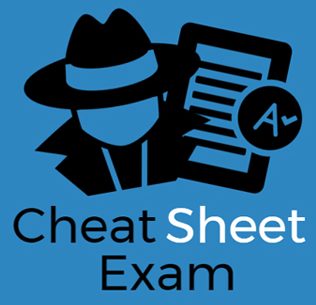Penalties for cheating in exams: NEW LAW IN SPAIN
Penalties for cheating in exams. A new Law of University Coexistence arrived in Spain, seeking to combat illegal behavior and some conflicts in the life of university students.

Apart from harassment or hazing, replication or fraud in studies and in the different tests are among the behaviors that must be stopped.
The new regulation, which replaces the one in force since 1954, differentiates the various forms of cheating in a test and reserves the most serious penalties for those with the greatest intentionality. Repetition or profit motive will also be taken into account.
Penalties for Cheating on Exam: impersonation
With a new article, 14, the serious offenses are proposed to be collected, in addition to reflecting various methods that are considered as "cheating" in an exam, some such as: "Altering, falsifying, extracting or deleting academic documents, or using erroneous documents in front of the university."
This chapter also covers plagiarism or fraud in the final dissertation, the Master's dissertation or the Ph.D. thesis."
The impersonation of "a member of the university society or giving consent to be impersonated" is also a rather serious misdemeanor. Consequently, having other persons perform the analyses instead of the student could be punishable with expulsions of 2 months to 3 years and loss of tuition fees. This sanction would be recorded in the student's file.
Serious cases
Article 15 represents in the midst of serious misconduct another type of fraud, which has the potential to be somewhat more common than the above. "Improperly taking possession of the contents of tests, tests, or understanding checks."
"Committing fraud at the academic level is understood as any behavior that tends to alter the results of an examination or work. Whether one's own or another's, anything that involves passing a subject or accrediting an academic performance."
This chapter could be either knowing the questions of an exam in advance to work out the answers or carrying out a cheat sheet or resorting to any other type of cheating to improve the results on a test. The key term in this situation is that it is "premeditated," a form of imitation or cheating that occupies prior preparation."
For this kind of misconduct, the expulsion can be up to one month. Even though it could not be used throughout the evaluation and enrollment periods. However, enrollment rights could be lost, the right to ordinary convocation throughout the academic year or semester in which the absence is committed. And with respect to the subject in which it would have been committed. These sanctions would not prejudice the scholarships in the terms provided in its development regulations. Penalties for cheating in exams.
Copy-from-student-next-door
The least accomplished form of imitating, trying to observe the proof of a fellow student, is not going to be considered even a slight fault. It remains therefore as it appeared from the regulation of 1954. In such cases, as has been done, the instructor can decide whether to suspend the student from the test or whether to give him a completely new possibility and simply separate him, in order to remove the temptation from him. Unlike serious misdemeanors, it is understood that in this kind of cheating no premeditation can be shown to be involved.
SEE CHEATING DEAN FOR MORE!!!

Deja una respuesta